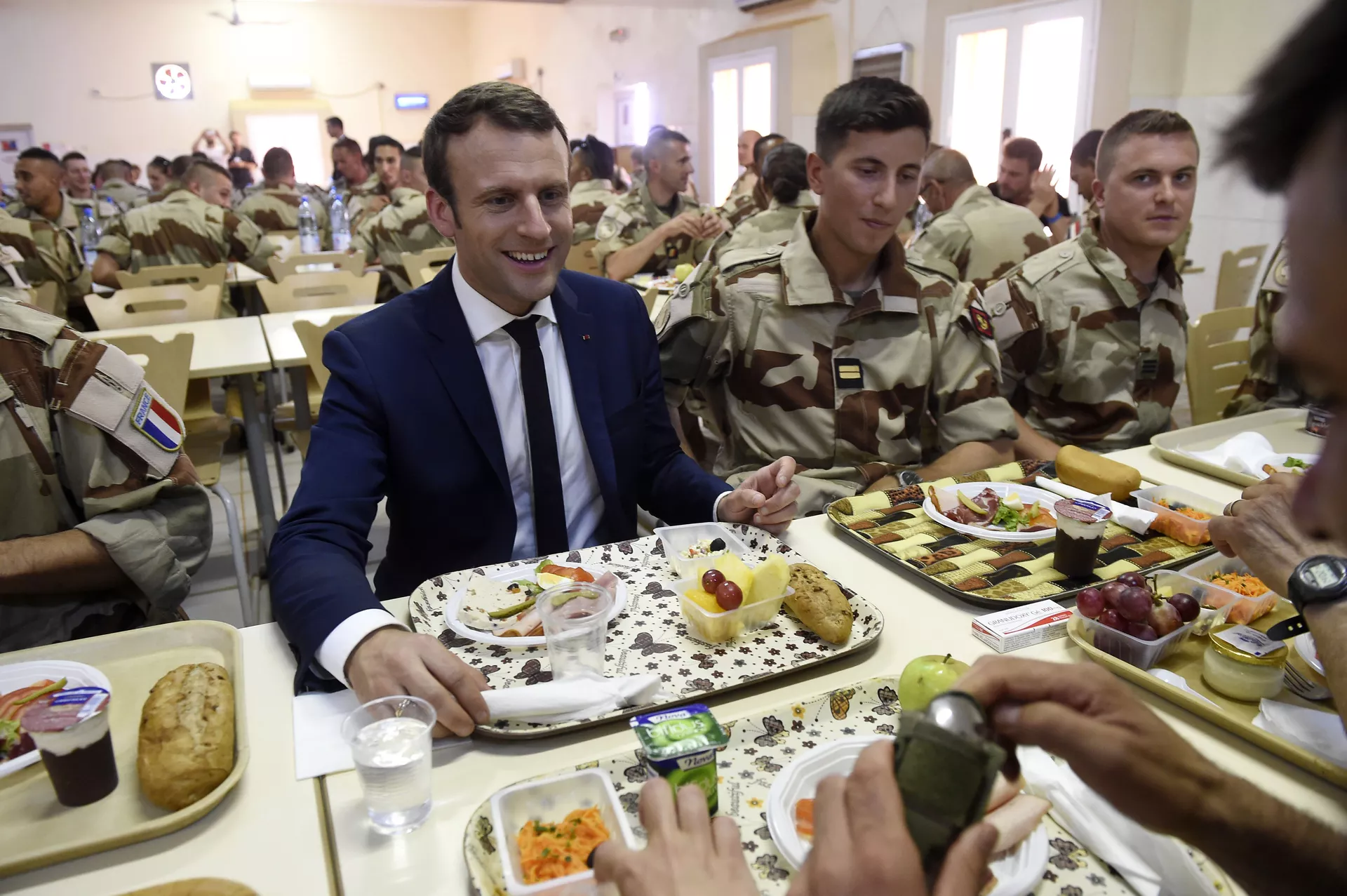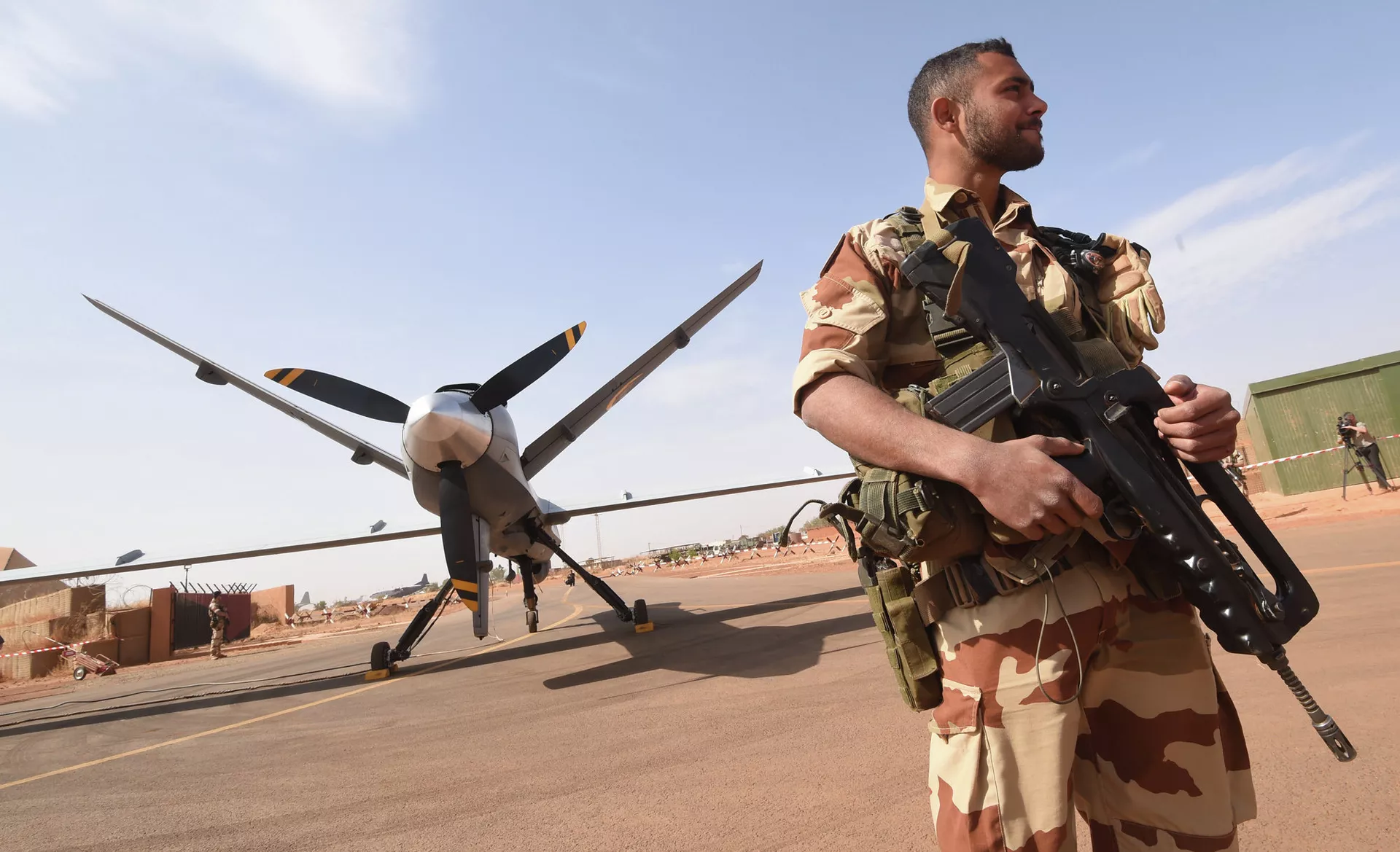Amid Mali’s Meddling Claims, France Admits Still Has 3,000 Troops in Africa’s Sahel Region
18:38 GMT 18.08.2022 (Updated: 11:37 GMT 23.11.2022)

© AP Photo / Jerome Delay
Subscribe
The French general staff has confirmed that it still has thousands of soldiers in Africa’s Sahel region, even after completing its withdrawal from Mali. The news comes as Bamako brings accusations that Paris supported terrorist groups inside Mali before the United Nations.
"As part of the reorganization of Operation Barkhane outside Mali, approximately 3,000 soldiers will remain engaged in the Sahel and will carry out their missions from the existing areas of Niger and Chad, alongside our African partners: combat military partnership, operational military partnership, logistical operations," the French general staff told AFP on Wednesday.
Operation Barkhane, a French counterterrorism mission that began in 2014 as a widening of the Mali-centered Operation Serval, ended last year amid opposition to the war both in Africa and France. The 5,500-strong force was based in N’Djamena, Chad, but carried out airstrikes, ground patrols, training, and other operations across five Sahelian nations.
“The end of the presence of French soldiers from Operation Barkhane in Mali does not correspond to the end of Operation Barkhane. The transformation of Operation Barkhane is much deeper than this departure from Mali," French Col. Pierre Gaudillière, a spokesperson for the general staff, told AFP.
The new mission, dubbed the Takuba Task Force, “is part of a new partnership approach with African countries that request it," he said. The mission was to be focused on the tri-state border region of Mali, Niger, and Burkina Faso, but after Bamako refused to cooperate, French forces quit the country, with the last troops leaving on Sunday.
The 3,000 number is at the upper end of what French President Emmanuel Macron said French forces would be reduced to in July 2021, and it is notably much higher than the “several hundred” he had said would constitute Takuba Task Force when he announced the end of Barkhane the month before.
Friends to Foes
The military government in Mali came to power in two coups d’etat: the first in August 2020 amid mass civilian protests formed a hybrid interim government including both military and civilian political parties; while the second came in May 2021 amid attempts by the civilian parties to diminish the military’s role in the government. Interim President Colonel Assimi Goita has promised new elections will be held by 2024.
French hostility to the new authorities in Bamako is matched only by Goita’s hostility toward Paris. His prime minister, Choguel Maïga, has accused France of carrying out “a de-facto partition” of the country by creating an “enclave” in which the Saharan tribesmen allied with Al-Qaeda and Daesh*, whom they were supposed to be fighting, could regroup their forces.
Malian Foreign Minister Abdoulaye Diop took those claims even further on Monday, telling the UN Security Council that his government has proof that French forces violated Malian airspace dozens of times over the last eight months, including to collect intelligence and provide material support for terrorist groups. In a letter provided to Sputnik, Diop elaborated on 16 incidents.
In response, a French Foreign Ministry spokesperson told AFP that it condemns “the increasing manipulation of information, which must not distract any attention at all from the worsening security and humanitarian situation" in Mali.

French President Emmanuel Macron (C) has a lunch break with French troops during his visit to France's Barkhane counter-terrorism operation in Africa's Sahel region in Gao, northern Mali, on May 19, 2017.
© AFP 2023 / CHRISTOPHE PETIT TESSON / POOL
‘France Clings Miserably’
However, Malians aren’t the only ones in the region who are upset about the French military presence.
A large French military convoy en route from the Ivory Coast to eastern Mali was met by strong protests as it crossed Burkina Faso and Niger, forcing the French troops to machine-gun their way through more than one of the demonstrations.
Both Niger and Mauritania, another Sahelian nation and former French colony that borders Mali, have also been hesitant to host the new French mission, and the Burkinabe government brought to power by a January coup in Ouagadougou has been snubbed by Macron’s administration.
On July 30, a new anti-French movement inaugurated itself outside the home of slain Burkinabe leader Thomas Sankara, who was assassinated by French-backed forces in a 1987 coup.
"France clings miserably to its former African colonial empire, which it plunders, exploits its resources and instigates coups, kills their heads of state, ignites terrorism and fuels wars and genocides,” Yéli Monique Kam, president of the M30 Movement anti-war coalition, said at the demonstration.
"We are taking our destiny into our own hands so that we have the freedom to choose partners and appropriate solutions that are good solutions to end the conflict." he added.
French forces invaded and conquered much of the Sahel in the late 19th century, and the territory that would later become Mali was part of French Sudan, although anti-colonial resistance continued. The irrigable land was used for cotton and nut plantations, while forced labor by Malians was used across the empire. The country became independent in 1958, although France has remained a major force in the Malian economy and politics, and intervened militarily several times.
*Al-Qaeda, Daesh (ISIS, ISIL, IS): terrorists group banned in Russia and many other countries.




